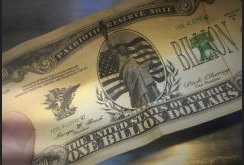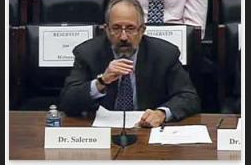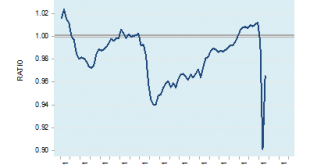Though numerous studies prove the contrary, it is still widely assumed that capitalism perpetuates racism. Celebrities and academics incessantly broadcast the message that capitalism engenders racism. For example, recently on Twitter, superstar athlete Andre Iguodala informed his followers that capitalism cannot be divorced from racism: “Capitalism and racism go hand in hand. And you can’t have one without the other.” Equally scathing is the blistering declaration...
Read More »When It Comes to National Defense, Bigger Isn’t Always Better
In the debate over whether or not China will soon rise to challenge the United States as the world’s hegemon, it is often assumed that states with large aggregate economies are necessarily more militarily powerful ones. This stems from decades-old methods that remain popular among scholars and pundits who write on international relations and foreign policy. The theory goes like this: states that rule over economies with a large gross domestic product (GDP) have more...
Read More »The Upside of Lockdowns: More Saving
Rothbard: “At the outset of every step forward on the road to a more plentiful existence is saving….Without saving and capital accumulation there could not be any striving toward nonmaterial ends.” Original Article: “The Upside of Lockdowns: More Saving” This Audio Mises Wire is generously sponsored by Christopher Condon. Narrated by Michael Stack. Original Text: Something good is coming out of the covid lockdowns. Economist David Rosenberg released a special...
Read More »Inflation Breeds Even More Inflation
I. Warning against Fiduciary Media Early in the 20th century, Ludwig von Mises warned against the consequences of granting the government control over the money supply. Such a regime inevitably creates money through bank credit that is not backed by real savings—a type of money that Mises termed “fiduciary media.” In 1912, Mises wrote, It would be a mistake to assume that the modern organization of exchange is bound to continue to exist. It carries within itself the...
Read More »The Upside of Lockdowns: More Saving
Something good is coming out of the covid lockdowns. Economist David Rosenberg released a special report via the eponymous Rosenberg Research, concluding “the pre-COVID-19 ‘norm’ of a 7% personal savings rate will morph into a post-COVID-19 norm of 10%.” Rosenberg makes frequent TV appearances after he was chief North American economist at Merrill Lynch in New York from 2002 to 2009, when he was consistently included in the Institutional Investor All-Star analyst...
Read More »How the State Preserves Itself—and What the State Fears
Once a State has been established, the problem of the ruling group or “caste” is how to maintain their rule.1 While force is their modus operandi, their basic and long-run problem is ideological. For in order to continue in office, any government (not simply a “democratic” government) must have the support of the majority of its subjects. This support, it must be noted, need not be active enthusiasm; it may well be passive resignation as if to an inevitable law of...
Read More »Surviving Tech Purges: What We’re Doing at the Mises Institute
[unable to retrieve full-text content]In the early 1980s few outlets existed for anyone interested in the Austrian school of economics or robust libertarian scholarship. Few universities taught Hayek, much less Mises or Rothbard. Libraries and bookstores carried little of interest for serious economists and thinkers in the old liberal tradition.
Read More »Let Unsound Money Wither Away
[This is a revised version of written testimony submitted to the the Subcommittee on Domestic Monetary Policy and Technology of the Committee on Financial Services, US House of Representatives, “Fractional Reserve Banking and Central Banking as Sources of Economic Instability: The Sound Money Alternative,” June 28, 2012.] Chairman Paul and members of the subcommittee, I am deeply honored to appear before you to testify on the topic of fractional-reserve banking....
Read More »Fiscal Stimulus vs. Economic Growth
For most experts a key factor that policymakers should be watching is the ratio between actual real output and potential real output. The potential output is the maximum output that the economy could attain if all resources are used efficiently. In Q3 2020, the US real GDP–to–potential US real GDP ratio stood at 0.965 against 1.01 in Q3 2019. A strong ratio (above 1) can be of concern because according to experts it can set in motion inflationary pressures. To...
Read More »There Ain’t No Success like Failure
Like me you are probably looking over photos of supposed Trump supporters breaching the ramparts and storming the Capitol yesterday. That is if you can find them. To “protect” us from viewing these incredibly “disturbing” scenes, Twitter has helpfully announced that it will severely restrict their distribution across its network. We can all rest easier, I suppose. Though even memory-addled Americans may recall the free-for-all in posting BLM and Antifa violence on...
Read More » Swiss Economicblogs.org
Swiss Economicblogs.org









